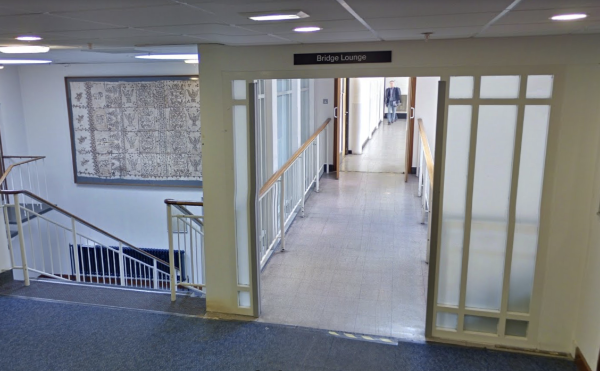There are no rules in writing, but if you break them, you get a very annoyed reader. Now, I don’t actually mind annoying readers or audiences. Engendering any feeling, even annoyance, is an amazing thing. But just as I wouldn’t sit here trying to think what would be most likely to offend you, I can’t do annoying just for the sake of it.
At least, not deliberately.
When I am intentionally annoying, it should be for a purpose and hopefully you’ll come to think that purpose was worth it. For instance, it must be twenty years since I read Olivia Manning’s Fortunes of War novels and just saying the title to you takes me back to being ferociously annoyed on a London tube train, reading what would then become some of my favourite books.
That’s where I was when I got to the bit where Guy takes that thing of Harriet’s. If you know the books, you know the thing. And if you don’t, I have an enormously recommended solution.
Anyway.
It turns out that there are three things that are guaranteed to make me wish I’d not started reading, and to stop me reading or watching or listening a minute longer. Your mileage may vary, but I propose that the three things that should be banned in writing forever are:
1) Endings where it’s all been a dream
2) Any story that uses multiple universes
3) The finale of Spooks season 1
Granted, that last one is a bit specific. Spooks was a superb BBC espionage thriller whose first run ended with an utterly compellingly fantastic final moment — that was destroyed in the opening seconds of series two.
To say that someone was trapped in a house with a bomb is to so far undersell everything that was happening in the first season finale, to so far undersell the blame and the fault and the tension, that the only reason I’m willing to not bend your ear for an hour about how great it is, is season two.
Where season one ends with that house blowing up, season two begins by revealing no, no, it was this other house that blew up, see? Everyone you’ve ever heard about in the show is fine. It’s okay. Calm down.
I did not even finish watching that second season opening episode.
But if it’s unfair to make that specific example be a rule alongside the dream endings and the multiverse, it’s also completely fair because all three are really the same.
Don’t cop out.
You can take us into tense and frightening areas, but you can’t cop out afterwards. I’m struggling to recall examples where I knew that pulling back at the end was imposed by someone, probably a broadcaster. There used to be a rule in US network television, for instance, that no character could quite aim a gun exactly at the screen, not quite, because that would frighten the poor public. This is about the same level of patronising.
Grief. In this moment, right now, I’ve flashed back to a meeting with some Top Gear producers, possibly solely Top Gear website producers, but I think it was the show. This was back when the BBC was under fire for faking the result of a vote to name a dog in Blue Peter or something. In its thorough way, you cannot count the number of meetings and rules the BBC put in place after that.
But during one of them – I can’t remember why I was even involved and it was certainly just as a spectator – the Top Gear people mentioned that show’s habit of staging races between its presenters. Three presenters, three cars, a race to do something, or to get somewhere, I don’t know.
My producer at the meeting got into an argument with them over the races. I remember this because I didn’t rate that producer and this was the sole time I agreed with him.
His position: everybody knows the races are faked. Their position: doesn’t matter.
They believed the races were compelling because they were races. His position was that if you know it isn’t real, you don’t give a toss, no matter how excitingly edited they are.
Things don’t have to be real, they just can’t be fake. And any cop out, any dream or multiverse or yeah-right-different-house-blowing-up is as bad as fake racing, for all the same reasons.
It comes from the same insulting belief that you can build up tension for the poor public and then take it away before actually doing what you were building to. I’ve seen where writers and producers are proud of how tense they’ve made something, to the point of congratulating themselves, somehow believing they were daring and brave, even though they had then destroyed everything they’d worked to create.
Here’s the clearest sentence I’ve ever written. You can do something or you can not do something, but you can’t do it and also not do it, you cannot have it both ways.
I’ve enjoyed many a moment of misdirection where we were at a different house than we thought — Slow Horses just did exactly that with a rather smaller moment and it was excellent — but for the big ending that’s meant to guarantee we come back next season, then saying it’s fine, they all lived, they woke up. No. Goodbye.
It’s a different house is an insult. It was all dream is another way of saying you just wasted the last 90 minutes watching A Midsummer Night’s Dream, although to be fair there is a clue in the title.
A story where it’s revealed there are multiple identical or very-nearly-identical universes is a story where the writer couldn’t cope keeping it in our one universe. Though to be fair, Star Trek: Deep Space Nine would sometimes play with two universes and cause scarringly deep emotional consequences in both.
Bugger. DS9 pulled it off. Shakespeare wrote dreams.
But that ending of Spooks was still shit, so there.

